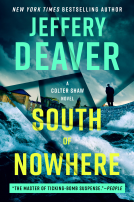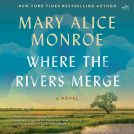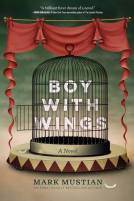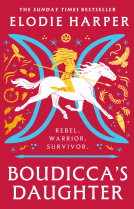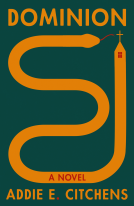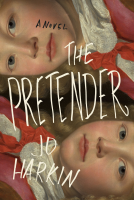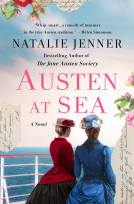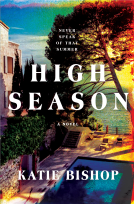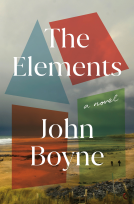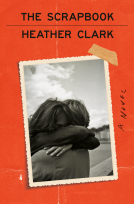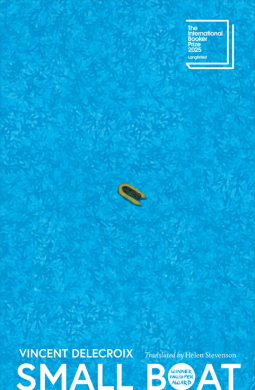
Small Boat
by Vincent Delecroix
This title was previously available on NetGalley and is now archived.
Send NetGalley books directly to your Kindle or Kindle app
1
To read on a Kindle or Kindle app, please add kindle@netgalley.com as an approved email address to receive files in your Amazon account. Click here for step-by-step instructions.
2
Also find your Kindle email address within your Amazon account, and enter it here.
Pub Date Apr 23 2025 | Archive Date Mar 27 2025
HopeRoad | Small Axes
Talking about this book? Use #SmallBoat #NetGalley. More hashtag tips!
Description
In November 2021, an inflatable dinghy carrying migrants from France to the United Kingdom capsized in the Channel causing the death of 27 people on board. Despite receiving numerous calls for help, the French authorities wrongly told the migrants they were in British waters and had to call the British authorities for help. By the time rescue vessels arrived on the scene, all but two of the migrants had died. The narrator of Delecroix’s fictional account of the events is the woman who took the calls. Accused of failing in her duty, she refuses to be held more responsible than others for this disaster. Why should she be more responsible than the sea, than the war, than the crises behind these tragedies? A shocking, moral tale of our times, Small Boat reminds us of the power of fiction to illuminate our darkest crimes.
Advance Praise
“As icy as the waters of the Channel on a November night.” —La Voix du Nord
“The narrator accuses those who judge her of hypocrisy and will only see herself as a cog in the administrative wheel of a France that will not give refuge to the world’s misery. As strong and cruel as the times we live in.”— Paris Match
“The metaphor of drowning reminds us of the extreme indifference which allows all of us to keep our head above water whilst others drown. The drowning in question is not that of twenty-seven lives but of humanity itself.”—Page des libraires
Available Editions
| EDITION | Paperback |
| ISBN | 9781913109370 |
| PRICE | £12.99 (GBP) |
| PAGES | 160 |
Available on NetGalley
Featured Reviews
 Bernie L, Reviewer
Bernie L, Reviewer
Small Boat is best experienced in one sitting. You are in a woman’s mind, she did something that had terrible consequences, and you are asked to judge her. But how will you judge her? Especially because judging her requires, to a degree, that you judge yourself. This book made me feel sad—sad for her, sad for those impacted by her inaction, and also sad for humanity, especially for the ways privilege shields us from others’ vulnerabilities, particularly when those others exist at a distance. This book is chilling in its depiction of life and death, it will make you feel ice cold like the sea in winter, and it will make you question the (in)significance of borders, what they dictate and what they dupe us into believing, for we are conditioned, and that becomes part of the point.
 Tracy S, Reviewer
Tracy S, Reviewer
This was the most frustrating, anger inducing, morally ambiguous book I’ve read in ages. And I loved it.
Our narrator is the most unreliable I’ve ever encountered. She truly doesn’t understand what she’s done wrong- how could it be her fault that a boat of immigrants drowned on her Coast Guard watch?
After all, she didn’t ask them to leave.
As she tries to explain how she’s not a bad person, because her ex is an anti-immigrant racist, and she broke it off with him, along with a whole passel of excuses, her circular logic begins to become something of a mirror for the privileged world.
The author brings in philosophy, religion (often interchangeable here) and ethics. In the process, he creates a character who may be the most morally warped ever: ourselves.
GM Gilbert said that evil is a lack of empathy. The narrator of Small Boat represents those who have lost their empathy, their compassion, and their commitment towards their fellow humans.
This book represents the best kind of literature: it holds up a mirror, and makes the reader want to change for the better. I will think about this book for a long time, and revisit it when I need to remember who I should strive to be.
Thank you to NetGalley and Hope Road for the ARC.
Small Boat by Vincent Delecroix, translated by Helen Stevenson (Longlisted for the International Booker Prize, out 4/23/25 thank you @hoperoadpublishing @netgalley for the #gifted eARC)
In November 2021 around seven thousand asylum seekers attempted to cross the Channel from France to the UK using small boats that did not always make it across. One specific boat that launched on the 23rd resulted in the largest single loss of life in the Channel since migrants began using this pathway in 2018. The events of this night are the basis of this fictional account centered around an inquiry into the staff on duty, one radio operator in particular, as they look into suspicion that there was a failure to assist persons in danger.
I want to start by sharing I had a difficult time connecting with this book for the first 20 or so percent, which I attribute largely to the fact that I read the full introduction. The factual information that set the context for this work of fiction was valuable, but the analysis in the later part of the intro made it difficult for me to become invested. I felt like I was being told how to interpret the book and what conclusions to draw. I loved the analysis, but favor forming my own impressions of a work before reading analysis and insights from others. If you’re like me maybe consider skipping the second half of the intro until after you read it. I’m worried the following thoughts could give too much away for those who like to draw their own conclusions so proceed with caution but do go read this and come back to tell me what you think.
Thank goodness I persisted; as this book progressed I became more invested and blown away by the depth this simple-seeming novel contains. I have a significant interest in understanding how extensively the systems we exist in influence our lives. We are so deeply embedded into the environment around us; the influence of the people we live and work with, the institutions surrounding us, and the policies that shape the society we live in. It is difficult to separate ourselves from this, to see and understand where our own agency begins and ends. I adore books like SMALL BOAT that attempt to tackle how this plays out. Delecroix explores individual responsibility, how policy plays out on the ground including resource constraints, how we are influenced by others, the meaning of borders and boundaries, privilege, and so much more in such a unique and interesting way.
I also love a book that elevates the themes it explores through its form. The interrogation style format of the first part that involves heavy use of repetition coupled with the constant and consistently wavering internal monologue of the person being queried reinforces the detachment of the character and their experience in a world that wears you down and chips away at you in a way that removes objectively and warps values tied to things as fundamental as the value of human life. The fact that everything is done in the dark adds to the veil that covers everything. The language of disassociation is used constantly throughout the narrative: those people, them, they (both the people in the water and the bigger “they” that includes all of us). The introspection of the narrator who is talking to herself made me wonder about her reliability and as we progress through the novel we realize that things may not be what they seem. The way this was constructed as a narrative coupled with the story being told add so much to this book’s big impact.
As I read Part 1 I thought a lot about the novel Clean that was also eligible this year. I thought Clean was an excellent work of fiction, and seeing similarities in the approach used by both books (a seemingly one sided interview with an interrogator) left me asking why this one was selected over the other. While I appreciated both books, after completing this I can see why this one was given the nod. In many ways these novels deal with similar issues, but the deeply nuanced exploration found within SMALL BOAT along with the way it is constructed is really exceptional.
This was the first book (and only book so far) that I have read from the International Booker longlist and it made me eager to read more and hopeful the other listed books will be of this caliber.
